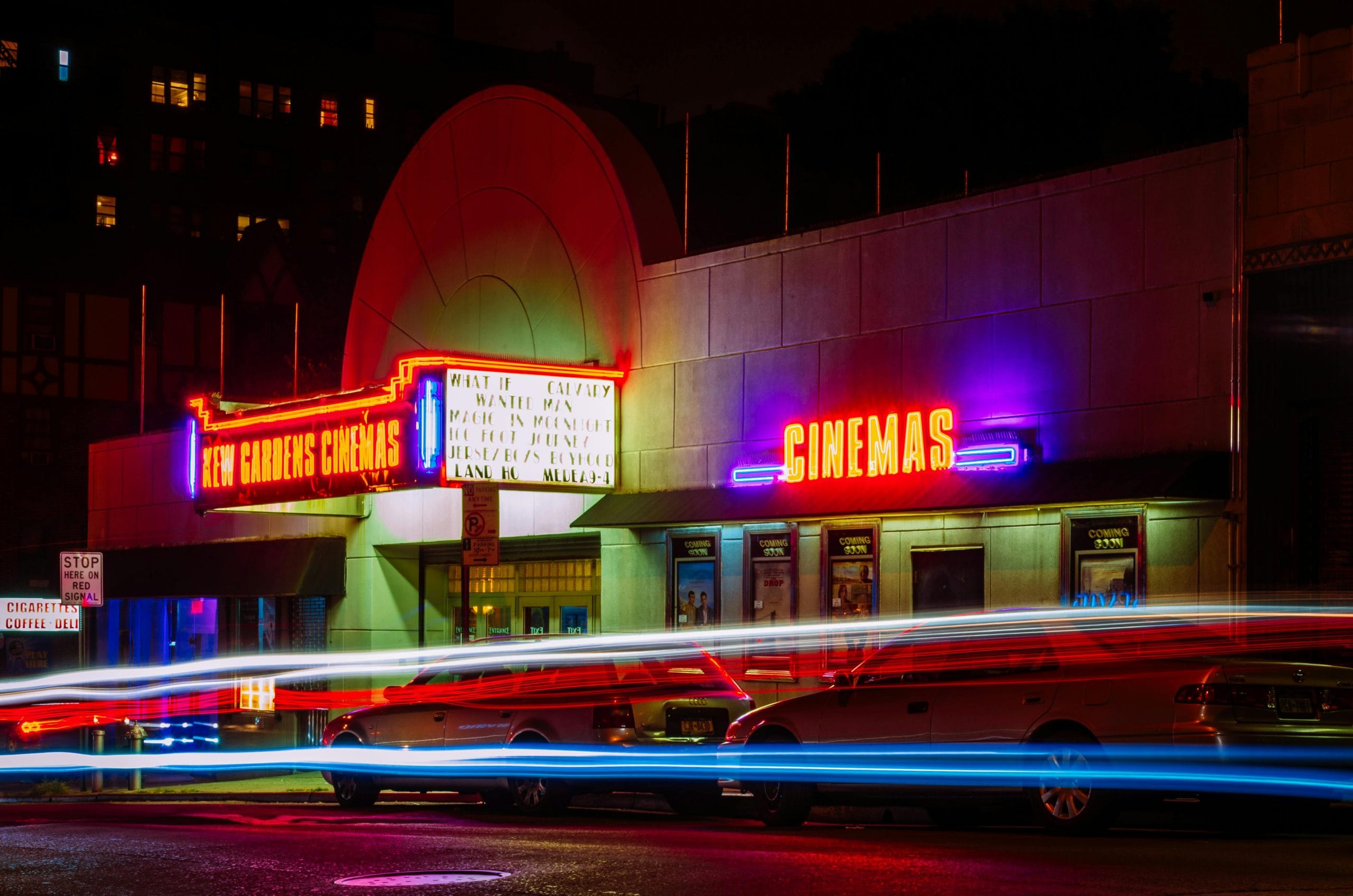- An Alamo Drafthouse franchisee surprised many this week in Dallas by declaring bankruptcy and shutting its Dallas locations.
- Alamo itself has pledged to reopen the Dallas locations as soon as possible.
- Its unclear, though, whether movie theaters will continue to be strong anchor tenants for retail developments.
I reckon anyone who is reading this article has been to an Alamo Drafthouse. The cinema chain that started in Austin is famous for its in-theater dining and strict no-talking policy. As Texans, we have been lucky to have such a vibrant, enthusiastic movie chain to visit. And it has spawned copycats – which has only benefitted consumers.
Unfortunately, last week the cinematic experience in Dallas, Texas, suffered a blow with the abrupt closure of all five of its Alamo Drafthouse locations – leaving customers and employees reeling. But what happened? And what does this mean for those cinemas? Could something similar happen in Houston or Austin or San Antonio? Lets talk about it.
Dallas Franchisee Files for Bankruptcy
The primary culprit behind the Dallas closures was the bankruptcy filing of the franchisee, Two is One, One is None, LLC. This local operator apparently struggled financially, likely due to a combination of factors. The ever-changing landscape of the movie industry, with streaming services vying for viewers’ attention, could have played a part. Additionally, the rising costs of rent, labor, and food supplies might have squeezed profit margins. Specifically, its release stated that the dwindling moviegoer numbers since Covid had hurt. Either way, it filed for Chapter 7 – which is liquidation. So it does not appear likely that Two is One, One is None plans to reorganize and continue to run the theaters.
Alamo Parent Intends to Reopen
It’s important to differentiate between the closure of the Dallas locations and the Alamo Drafthouse brand itself. The Alamo Drafthouse Cinema operates under a franchise model, meaning individual entities own and manage specific locations. The closure in Dallas only affected theaters under the franchisee’s umbrella.
In the wake of the Dallas closures, the Alamo Drafthouse corporate entity expressed its commitment to bringing the brand back to the city. Its statement highlighted efforts to “get Alamo Drafthouse Cinema back up and running”. This suggests a proactive approach to finding a new franchisee or potentially taking over operations themselves – the details were not forthcoming.
I know very little about bankruptcy law. So I called my friend and fantastic bankruptcy lawyer Jermaine Watson – a Partner at Cantey Hanger LLP. He explained to me that, typically in these situations, the franchisor will try to find a new operator to run the theaters. The franchisor typically has a first priority lien on the property, the equipment, etc. It also usually supplies the franchisee with a lot of the materials it needs and goods it sells. As a result, it is not too difficult to replace the operator with a new one. The franchisor does, of course, have to negotiate this with the bankruptcy trustee. But often the trustee will be happy for the franchisor to find a new operator. Again, Jermaine was not commenting on this particular bankruptcy case – just bankruptcy cases in general. But as a result, if Alamo proceeds like this, its possible the Dallas cinemas could be up and running again in relatively short order.
What Does This Mean for the Rest of Alamo?
The news also sparked concern for Alamo Drafthouse’s other Texas locations, particularly Austin, Houston, and San Antonio. While these locations remain operational, it’s natural to wonder if they could face similar fates.
The financial health of the franchisee operating these theaters is crucial. News reports haven’t indicated any financial troubles for the franchisees in these cities. However, the competitive landscape and economic factors remain relevant concerns. We could go through the concerns – but those are for the movie industry as a whole. And while I love going to the movies and love Alamo Drafthouse, I am certainly not an entertainment industry insider. So I can only speculate.
But I think that is an interesting question and one we should potentially explore more. Movie theaters are popular anchor tenants to retail commercial properties. But will that continue to be the case in the future? As the theater experience continues to evolve, will we see fewer successful theater chains in existence? I guess check back in this blog in the future for that discussion.For now, the closures in Dallas serve as a cautionary tale, highlighting the challenges faced by the cinema industry. However, Alamo Drafthouse currently seems committed to continuing to thrive in the Texas market.



